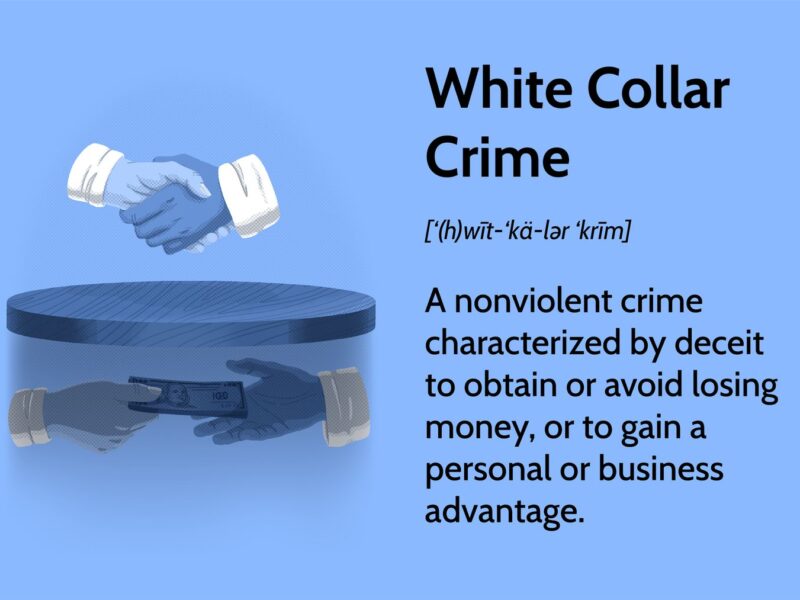White collar crimes such as fraud, embezzlement, and insider trading can be avoided by your business. Implement proactive measures and compliance guidelines to safeguard operations.
In today’s business landscape, white collar crimes represent a significant threat that can undermine a company’s integrity and financial health. Awareness and preventive strategies are crucial in protecting your organization from such illicit activities. By fostering a culture of transparency and ethical behavior, businesses can deter potential internal misconduct.
Proper employee training, regular audits, and a clear reporting system are fundamental steps to avoid falling victim to these criminal acts. Ensuring that your business adheres to legal standards not only secures its assets but also instills trust among stakeholders, which is instrumental for long-term success. Emphasizing a zero-tolerance policy towards white collar crimes is essential for maintaining a reputable and thriving business environment.

Credit: hbr.org
The Landscape Of White Collar Crime
Businesses face various white collar crimes. These include fraud, embezzlement, and money laundering. Cybercrime is also a big threat, with data breaches and identity theft becoming more common.
Recent trends show an increase in sophisticated schemes. Digital technology plays a big role in this rise. Companies must be vigilant and proactive to protect their assets and reputation.
| Crime Type | Example |
|---|---|
| Fraud | False accounting |
| Embezzlement | Misuse of company funds |
| Money Laundering | Cleaning illegal money |
| Cybercrime | Hacking systems |
Assessing Vulnerability Points
Businesses face various internal and external risks of white collar crimes. To safeguard against these, understanding and assessing points of vulnerability is crucial. Concerning internal risks, employees and management can pose significant threats. These may include fraud, embezzlement, or data theft. Strict employee monitoring, audits, and a robust internal control system can mitigate these dangers.
Regarding external risks, vendors and third parties often interact with sensitive information. Due diligence and regular background checks are vital in these relationships. Companies should also enforce strong security protocols for data shared with external entities. Solid contractual agreements with clear clauses relating to anti-fraud measures can serve as a strong deterrent.
Solidifying Internal Controls
Effective financial protocols are key to avoiding white collar crimes in any business. Creating clear policies on financial transactions can prevent unauthorized access and fraud. Each step in handling finances should have strong checks and balances.
Tight cybersecurity keeps sensitive data safe. Employees must have regular training on security practices. Invest in robust anti-virus and firewall solutions. Keep all software up-to-date to protect against the latest threats.
| Action | Benefit |
|---|---|
| Set up approval processes | Limits fraud chances |
| Monitor transactions | Spots irregularities early |
| Use encryption | Secures online data |
| Conduct regular audits | Ensures policy adherence |
- Regular password updates are critical.
- Employee access should align with job needs.
- Immediate incident response plans can reduce damage.

Credit: www.wsj.com
Cultivating A Culture Of Ethics
Businesses must be vigilant against white-collar crimes. Creating transparent policies is key to prevention. These policies should be clear, concise, and easily accessible to all employees. A strong ethical foundation deters misconduct.
Encourage employees to speak up about unethical behavior. An anonymous reporting system can aid in this. Such a system promotes a transparent work environment. Make sure that whistleblowers are protected. This will foster trust and encourage honesty among the team.
Proactive Monitoring And Auditing
Businesses must guard against white-collar crimes. Regular internal reviews play a critical role. Effective systems and processes detect potential fraud early. By monitoring financial activities, companies can spot inconsistencies.
Investing in fraud detection technology can further safeguard a business. Such tools employ advanced analytics to pinpoint irregularities. Automated solutions help in scanning for dubious patterns. The aim is to stop fraud before it harms the business.
| Implementation | Benefits |
| Regular Audits | Immediate Issue Identification |
| Fraud Detection Tools | Advanced Analytical Oversight |

Credit: www.linkedin.com
Legal Safeguards And Insurance
Legal safeguards play a crucial role in protecting businesses from white collar crimes. A solid understanding of liability ensures that companies can establish effective measures to prevent legal issues. A business must recognize potential risks and implement strategic policies to mitigate them.
Insurance serves as a critical tool for mitigating risks associated with white collar crimes. It provides a safety net against financial losses. Companies should carefully choose the right insurance policies that cover various liabilities connected with white collar crimes. Such coverage often extends to employee dishonesty, electronic data breaches, and forgery. It’s essential for businesses to regularly review and adjust their insurance to ensure adequate protection.
Conclusion
Safeguarding your business from white-collar crimes is vital. Embrace transparency, robust internal controls, and routine audits. Educate your team on potential risks; together, you can foster a secure, lawful work environment. Prevention is the key—stay vigilant and proactive to shield your business from these financial threats.

